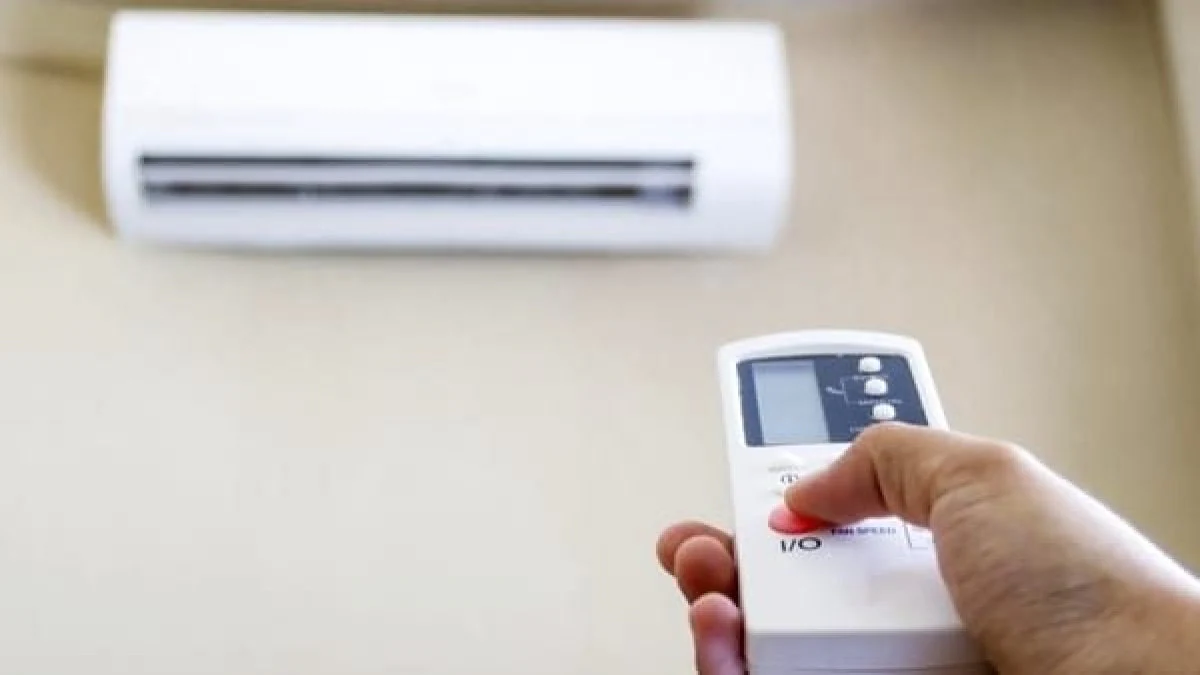Do you save money if you turn off the air conditioner when you are not at home? What do the scientists say?
Three researchers from the University of Colorado have determined whether it is convenient to turn off the air conditioner when you are not at home or to leave it on.
L'air conditioning in periods of "hyper-extreme" heat like the one experienced in the past few weeks - due to African anticyclone - for many is essential. Moreover, in addition to making work, study, and life, in general, more comfortable, it can also represent a shield against potential health problems.
Ma la bill cell electric energy has a considerable cost, especially in this period of skyrocketing, so using the conditioner most efficiently and correctly possible can help us not only with Welfare but also with pockets. For example, it might seem intuitive that turning off the air conditioner when we are away from home and turning it back on after a day of work can offer greater savings than keeping it on all day (maintaining the desired temperature). But is it so? A group of three female scientists wanted to investigate the matter: here's what they found.
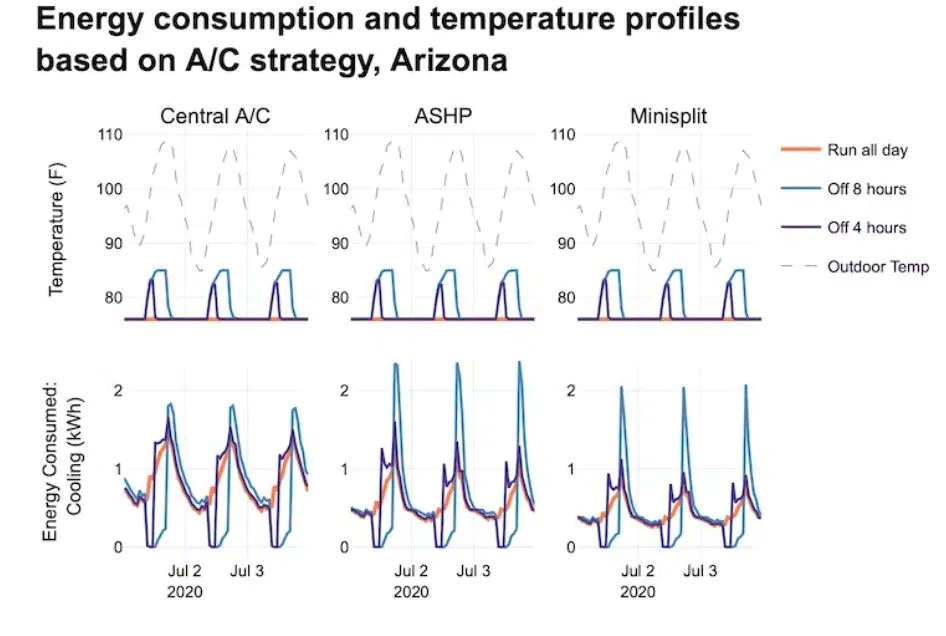
The consumption of air conditioner is kept on all day or off for 8/4 hours in a dry climate. Credit: The Conversation
Scientists Aisling Pigott, Jennifer Scheib, and Kyrie Baker, specialists in Architectural Engineering and Building Systems Engineering at the University of Colorado in Boulder, to determine whether to keep the air conditioning on all the time during the summer or to turn it off when not you are at home have used specific mathematical and energy models, able to simulate the heat transfer in a house.
The fundamental crux of the question is this: is it better to continuously remove the heat from the house throughout the day, or is it better to throw out everything accumulated during the day when you return? From the calculations, it emerged that, in general, it is better to remove the heat at the end of the day (therefore turn off the air conditioner when you leave and turn it back on when you return home), however, this is not always the case. There are several factors to take into account, such as house insulation the size type of air conditioner used, and the temperature and external humidity stated by the researchers in an article published in The Conversation.
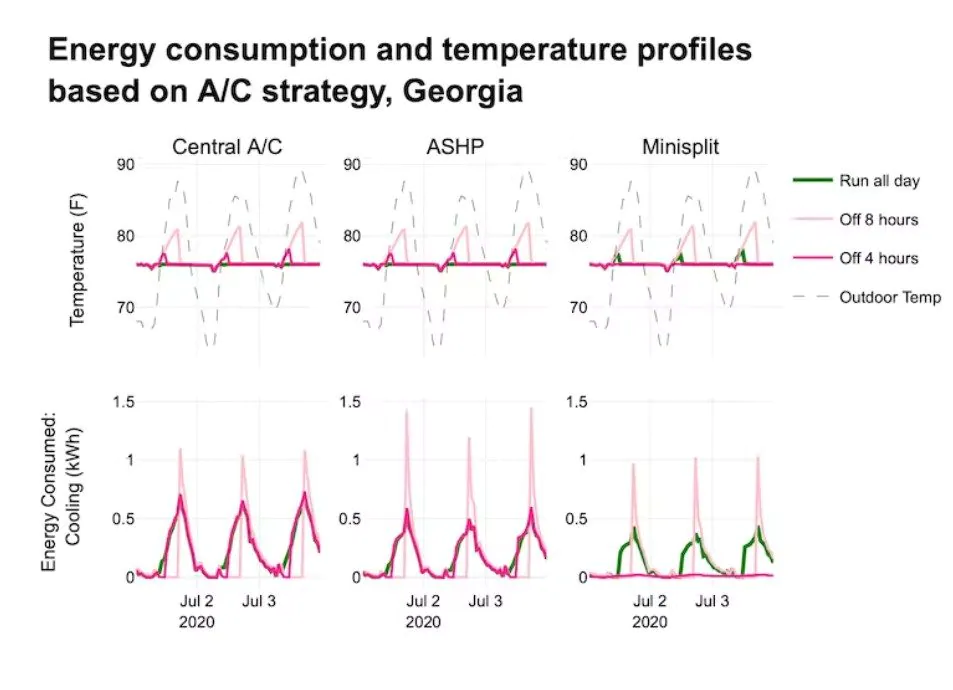
The consumption of air conditioner is kept on all day or off for 8/4 hours in a humid climate. Credit: The Conversation
To explain their reasoning, the researchers gave a practical example, related to the amount of heat that accumulates in a house. Imagining that there is an accumulation of "1 heat unit” For every hour and the air conditioner must therefore remove this heating unit per hour to maintain the desired temperature, it is intuitive to think that leaving the air conditioner off for 8 hours, when you turn it back on there will be 8 heat units to remove.
But that's not always the case. Homes have "a limit to the amount of heat they can accumulate". For example, the house can come into equilibrium with the outside temperature after accumulating 5 units of heat, it does not necessarily have to reach 8 after 8 hours.
In addition, the scientists explain, heat transfer slows down as the indoor and outdoor temperatures approach equilibrium, while the air conditioning cools less effectively when temperatures are very high, so "keeping it off during the hottest hours. of the day can increase the overall efficiency of the system ". For all these reasons, it is not easy to understand whether it is better to keep the device on all the time or to turn it back on when you are at home.
What the James Webb Space Telescope Saw
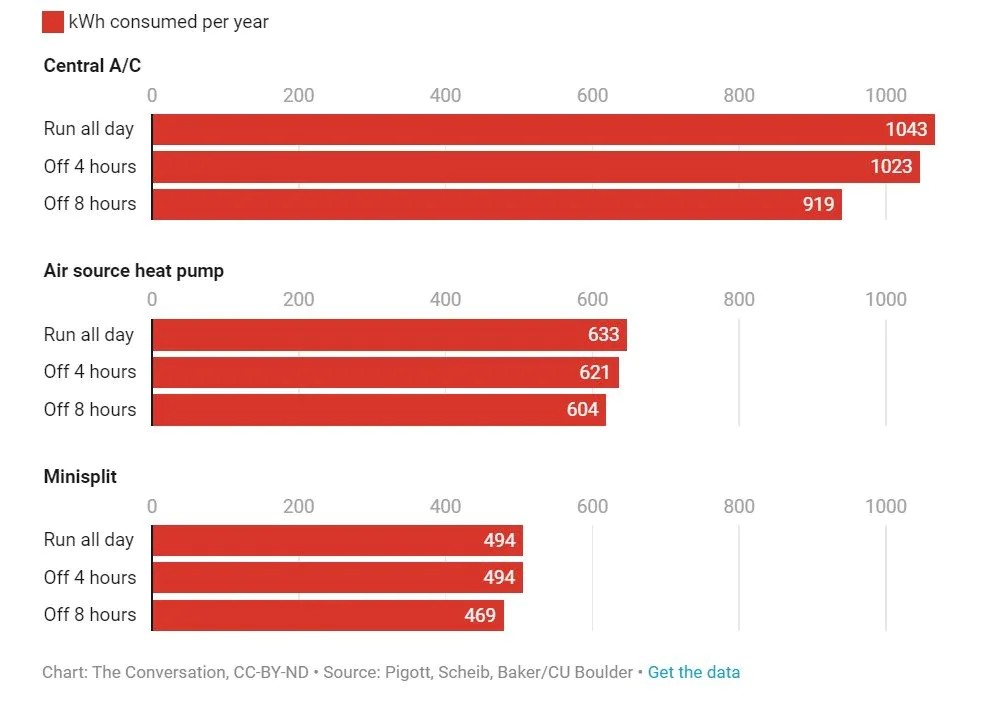
The annual consumption in kWh of a house in a dry environment with three types of air conditioners and three operating methods. Credit: The Conversation
The researchers, using energy modeling software from the National Renewable Energy Laboratory to determine the energy consumption of residential buildings in the US, did various "convenience simulations" with a typical house. 110 square meters located in a dry climate (Arizona) and a humid climate (Georgia).
They evaluated three scenarios of conditioned temperatures: the first with 24,4°C constants inside; the second with fluctuation up to 31.6 °C with a shutdown of the air conditioning for 8 hours; and the third with the same fluctuation of 31.6 ° C but with a shutdown of 4 hours. The scientists also considered three different air conditioning technologies, namely a common centralized air conditioning, one heat pump central air (ASHP), and a heat pump unit mini split.
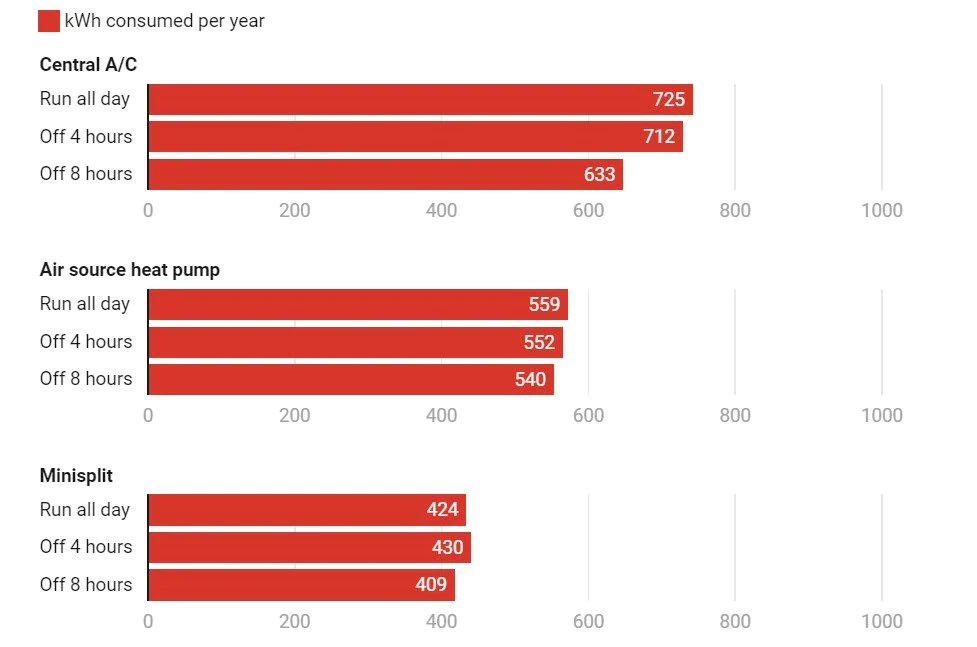
The annual consumption in kWh of a house in a humid environment with three types of air conditioners and three operating methods. Credit: The Conversation
Crossing all the data, the researchers determined that generally turning off and on the air conditioner consumes less than keeping it always on to maintain a constant temperature throughout the day. In one year you can reach a saving of 11 percent with a centralized air conditioning system. However, these savings can decrease "if the house is better insulated, the air conditioning is more efficient or the climate has less significant temperature changes".
“The centralized air heat pump and the mini split heat pump are overall more efficient, but they save less in the event of temperature drops. An eight-hour shutdown on weekdays offers savings regardless of the type of system, while the benefits of a four-hour shutdown are less significant, ”concluded the experts.
Reference: Wikipedia
